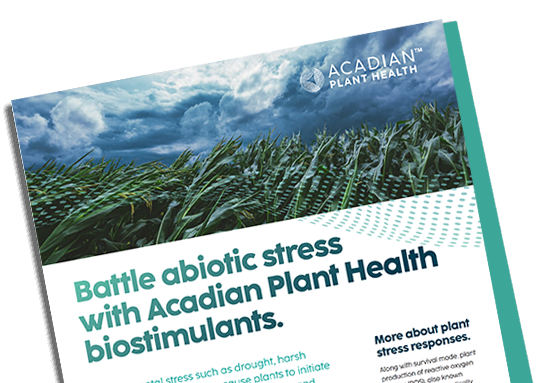
Fortify plants against abiotic stress and increase crop quality with Acadian Plant Health.
Abiotic stressors such as drought, challenging weather (including high heat and cold), and salinity cause crop loss and impact yield globally. And while growers can’t control the weather, they can control how they defend against it.
Effects of environmental stress.
When abiotic stress hits, plants initiate survival mode and redirect energy from growing to combatting stress. They reduce transpiration as well as photosynthesis and store water and nutrients, slowing productivity. Though crops have these defenses, prolonged or intense stress can cause detrimental, yield-reducing strain.
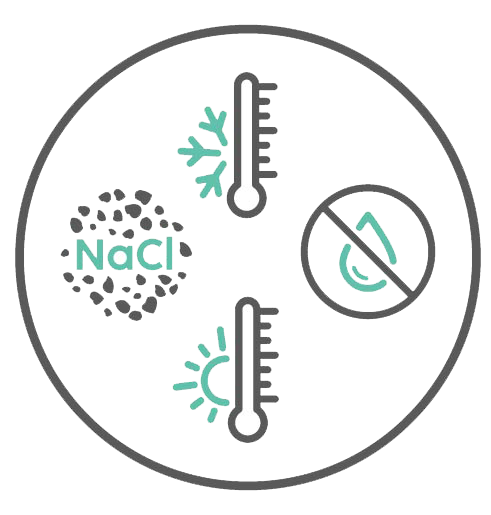
Environmental stress has 7-10 times more impact on crop growth and productivity than diseases or pests.
Defend against abiotic stress with
Acadian Plant Health biostimulants.
Acadian Plant Health biostimulants fortify plants from stress by teaming up with plants' natural defense mechanisms. APH's Ascophyllum nodosum extracts have bioactive compounds that aid plants in coping with drought, heat, cold, and salinity, boosting their resilience and productivity in tough conditions.
Applications of Ascophyllum nodosum biostimulants support root and plant growth, improve plant resiliency against environmental stressors, and protect yield potential while improving crop quality and attributes, such as colour, size, and Brix content.
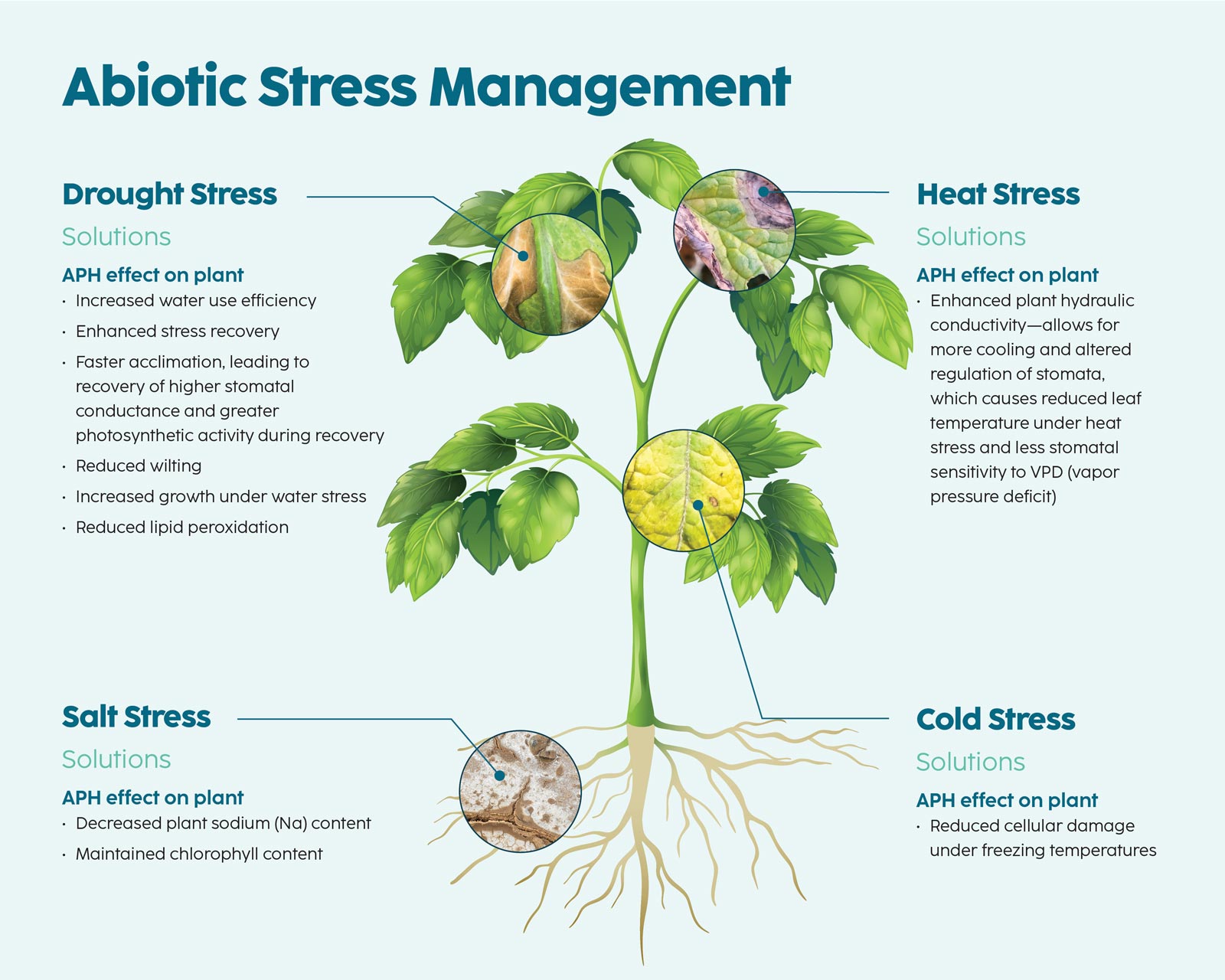

Drought: During drought, plants frequently close their stomata and reduce photosynthesis to conserve water. To combat drought, APH biostimulants enhance root development and improve nutrient and water uptake from soil. Trials at the Dr. James S. Craigie Research Center showed the root lengths of APH-treated wheat seedlings increased by 103% over the control group, helping maintain treated plants' tolerance to drought.
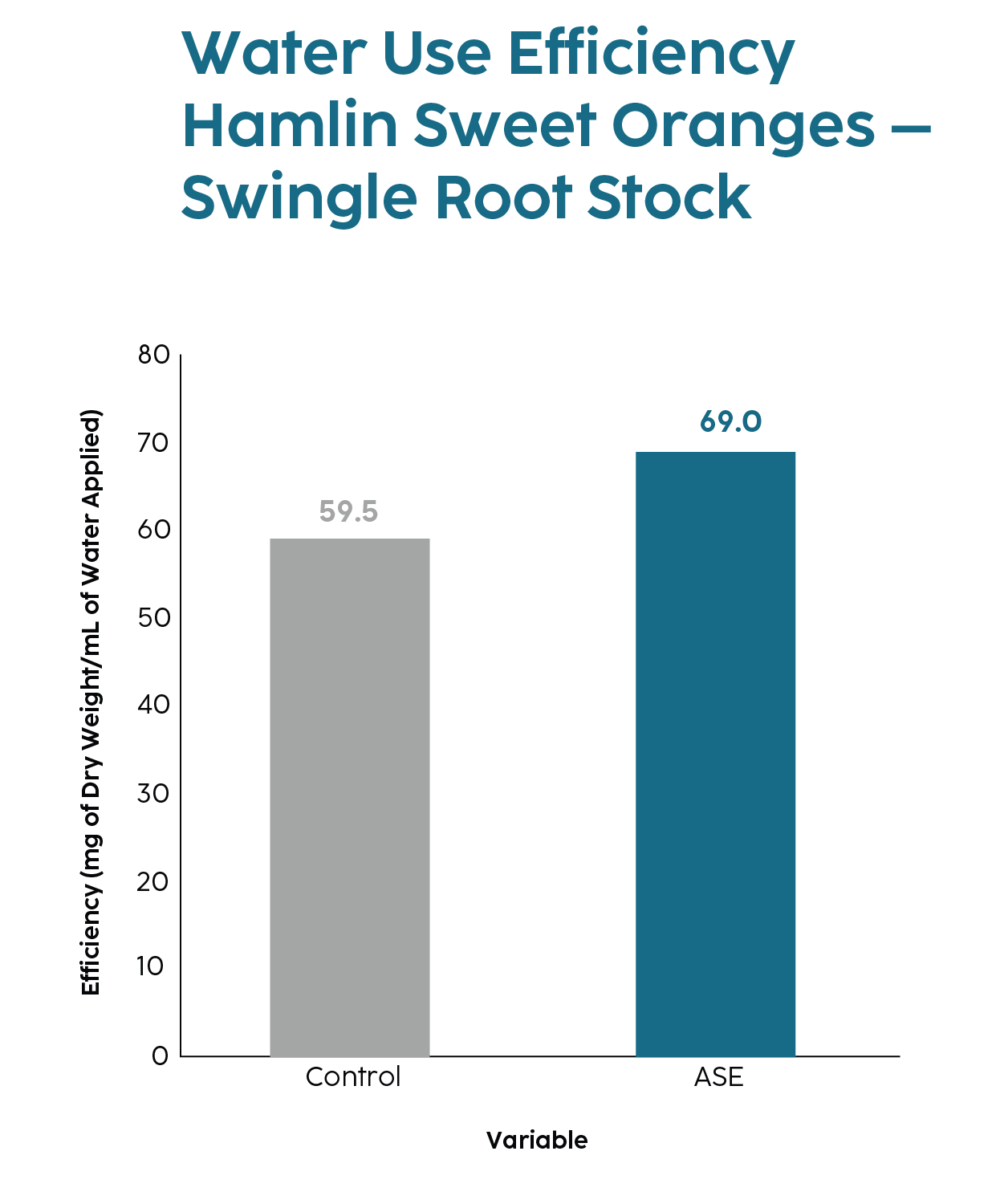
In this University of Florida trial, water use efficiency under drought was almost 17% higher in APH-treated plants than in control. With the help of APH biostimulants, root growth can increase and improve access to water, lessening wilting and allowing for better drought recovery.

Salinity: Salt and drought stress typically occur together. Salts can reduce plants' ability to take up water and damage cells impacting processes, including germination, growth, photosynthesis, and nutrient uptake. High-salinity soils have low water potential, drawing water from plants. In turn, plants must adjust the osmotic balance and limit the harmful effects of salt ions. APH biostimulants contain bioactive compounds, like mannitol and alginates, which mitigate sodium uptake and help maintain balance in plant tissues.
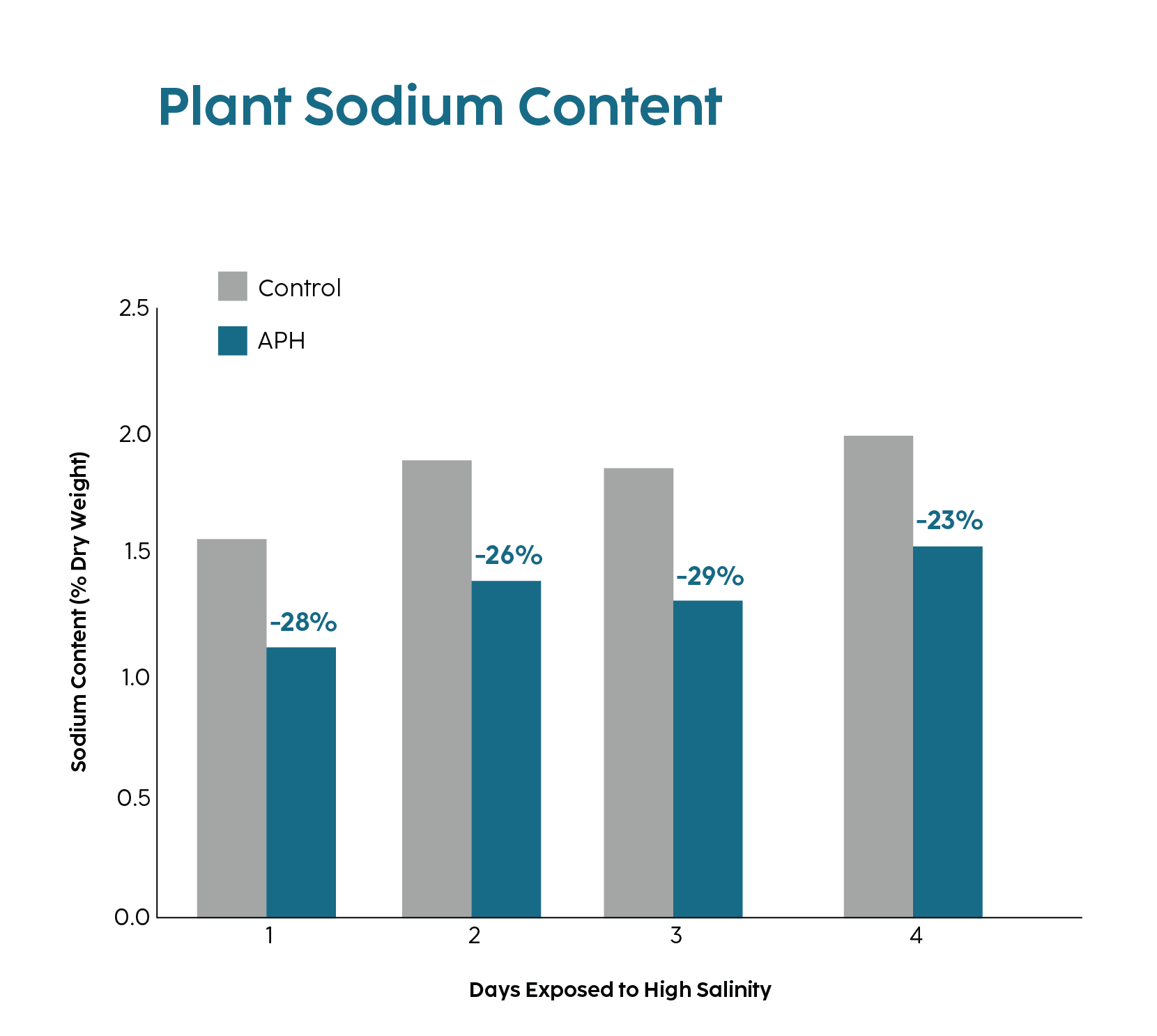

Acadian Plant Health biostimulants reduce the plant's salt uptake by producing osmolytes, allowing the plant to continue photosynthesis. The image displays control and APH-treated soybean plants under normal and saline conditions. Visual evidence shows a higher level of chlorosis present in the control group with salt added.

Heat: Prolonged heat stress in plants can cause reduced pollination and bloom density, as well as decreased fruit set. Excessive heat can also lead to smaller fruit and kernels and reduced sugar content (Brix levels) in fruit. APH biostimulants trigger mechanisms in plants to aid cooling and improve photosynthetic efficiency, helping plants maintain optimal energy production even under harsh conditions.

Cold: Chill-sensitive crops face challenges when temperatures drop. Plant tissues and cells struggle to function normally at cold temperatures, leading to increased respiration, disrupted energy production, decreased photosynthesis, and changed cellular structure. APH biostimulants can aid crops with frost tolerance by helping maintain plants' internal sugar. Internal sugar serves as a block against damage by reducing the internal freezing temperature of the plant.
Prepare for every possibility this season.
Environmental stress can be an energy-reducing process for plants, affecting yield quality and growers' profits. Putting APH biostimulants in the mix helps support crop quality and yield potential by reducing the impact of abiotic stress.
